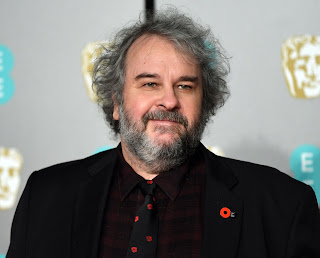 |
| Director Peter Jackson Source: Indiewire |
Under what conditions do people experience a burst of unprecdented success in their careers? Scholars have been studying the ingredients of career "hot streaks" for some time. At first, scholars thought that such unusual periods of success occurred randomly. However, new research methods have capitalized on artificial intelligence to advance our understanding of such hot streaks. Scholars Lu Liu, Nima Dehmamy, Jillian Chown, C. Lee Giles, and Dashun Wang developed an AI system to study the work of 2,128 artists, 4,337 directors, and 20,040 scientists. They found that hot streaks emerged when these artists, directors, and scientists first engaged in a period of broad exploration of creative options and then shifted to an exploitation phase in which they focused intensely in a particular domain. Kellogg Insight summarized their findings:
The results make clear the “recipe” for a hot streak: exploration of creative options followed by exploitation of a specific “lane” of work ultimately leading to greater success. This held true across all three domains studied. For example, director Peter Jackson made films that fell into horror, comedy, drama, and other genres (reflecting a period of exploration) before hitting it much bigger with the Lord of the Rings fantasy franchise. Analysis of painter Jackson Pollock’s work, similarly, showed exploration of a wide range of styles before the focused “drip period” (1946–1950) that elevated him to global fame.
The research found, further, that exploration or exploitation by itself is not enough for a hot streak. That is, only the specific exploration-exploitation sequence led to the highest increase in likelihood of a hot streak: hot streaks following that sequence were 20.5 percent, 13.8 percent, and 19.2 percent more likely for artists, directors, and scientists, respectively, versus after a random point in a given career. Exploration and exploitation alone were associated with no such increase.
“If you just do one or the other, you don’t get the full impact,” Chown says. “It has to be the combination of exploration followed by exploitation: experimenting in different areas, learning different domains and approaches, then really hunkering down and developing that body of high-impact work.” Wang agrees: “Our work shows that people experiment and likely gain new skills from work in different subfields, and then help find the best one to exploit, which seem crucial for hot streak.”
As I read this study, I was reminded of a terrific book I read several years ago by David Epstein. In that book, Range: Why Generalists Triumph in a Specialized World, Epstein argues that we should not specialize early and narrowly in our lives. Instead, we should explore and develop competence in multiple areas. He argues that these generalists ultimately create more innovation than people who specalize narrowly. This AI-driven study of scientists, directors, and artists takes Epstein's argument one step further. It confirms the value of being a generalist, though it emphasizes the benefits of a shift from broad competence to specific expertise over time. Either way, both Epstein's book and this study provide a compelling argument for not restricting yourself too early in your career. Unfortunately, in many professions, the pressure to specialize can be very powerful. Take my profession, for instance. In management academia, the path to early career success seems to emphasize mastery of a narrow domain - and too often, that entails a quite esoteric focus. Broadening the mind has many benefits, and we should not forget that as we coach and mentor young people in their careers.
No comments:
Post a Comment